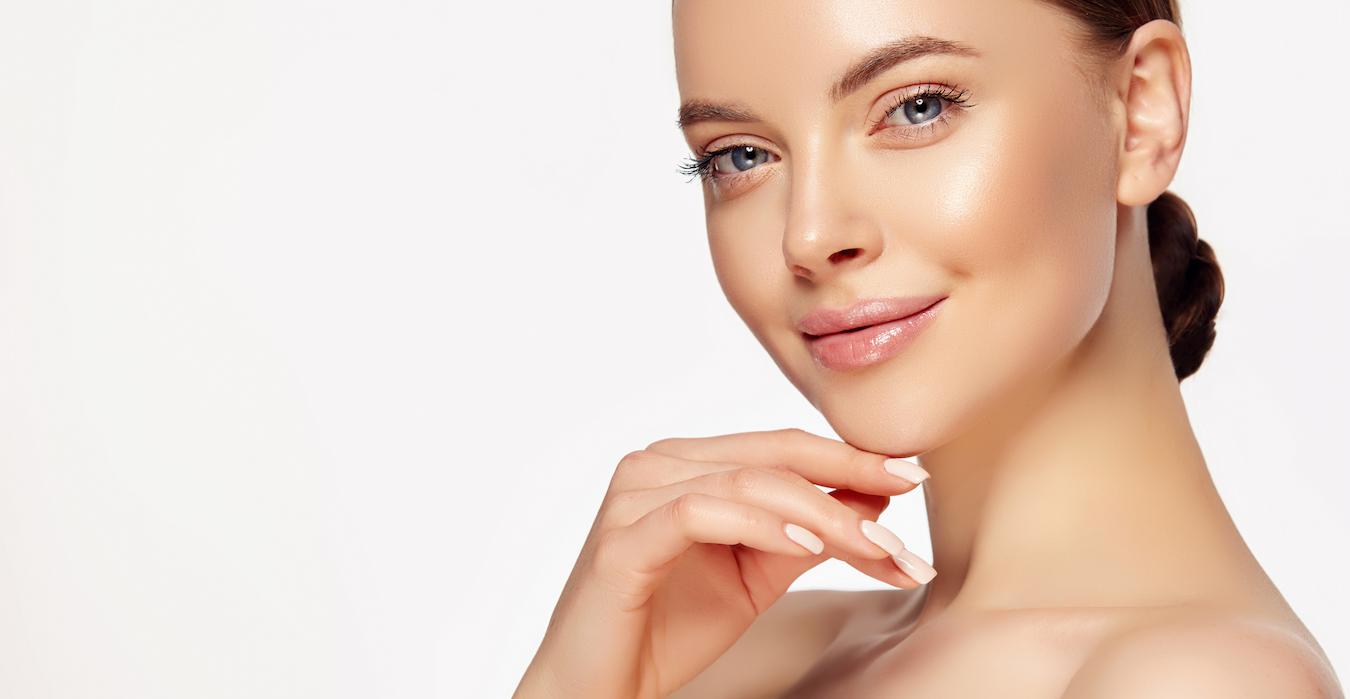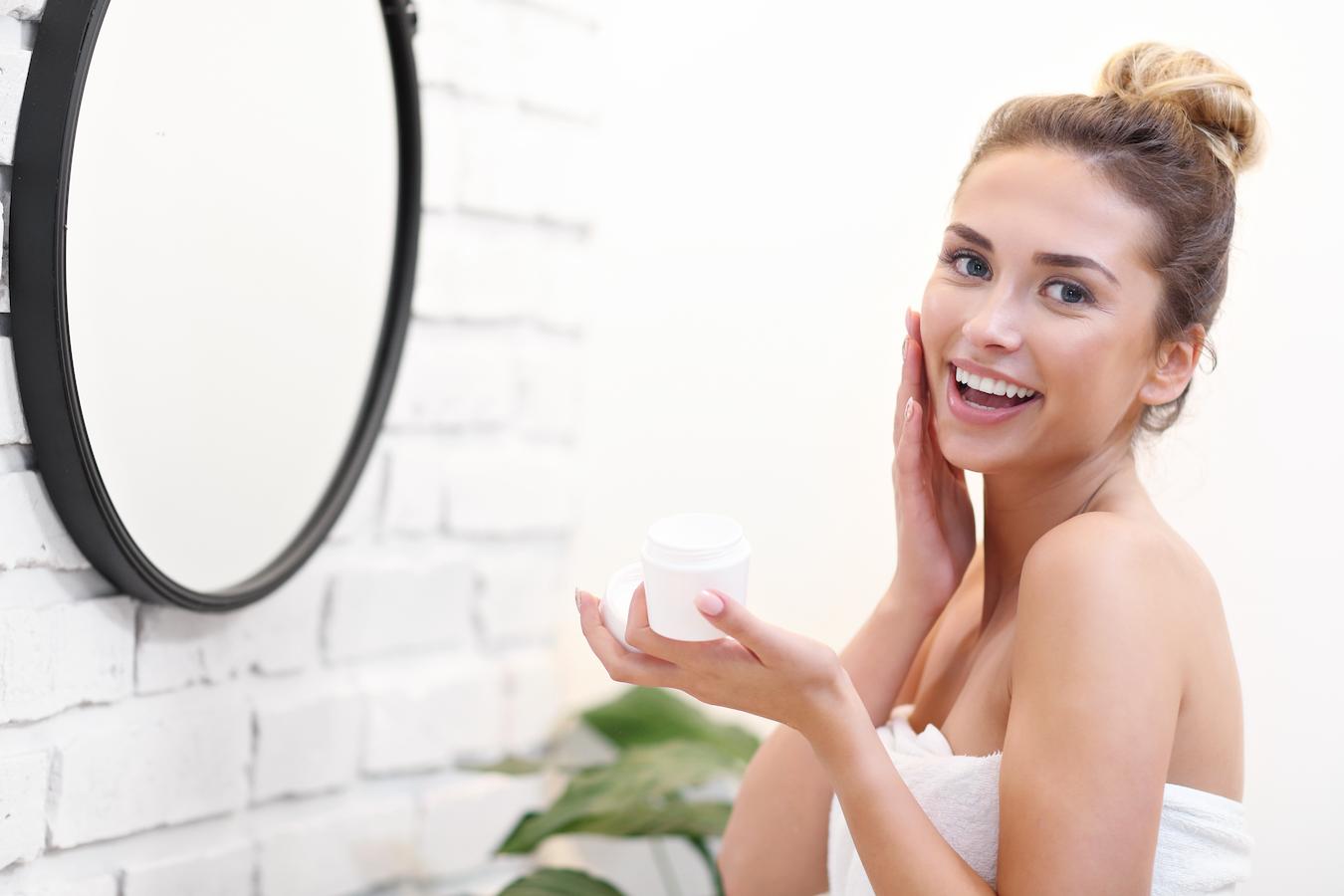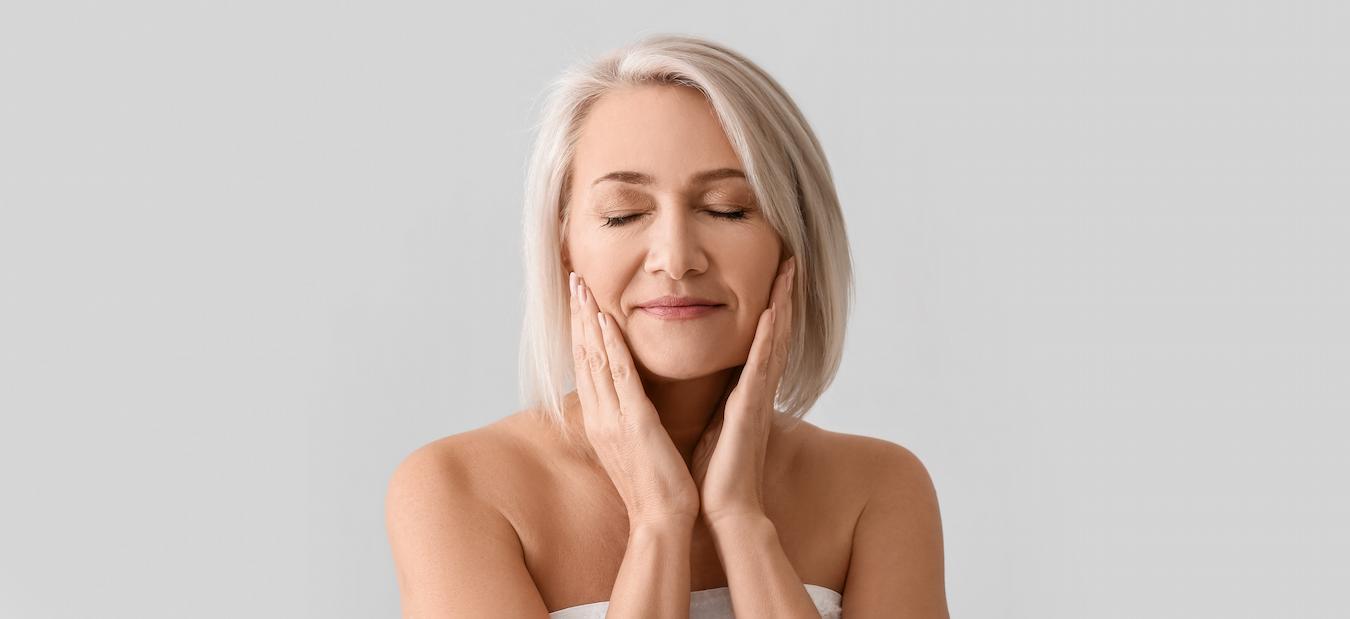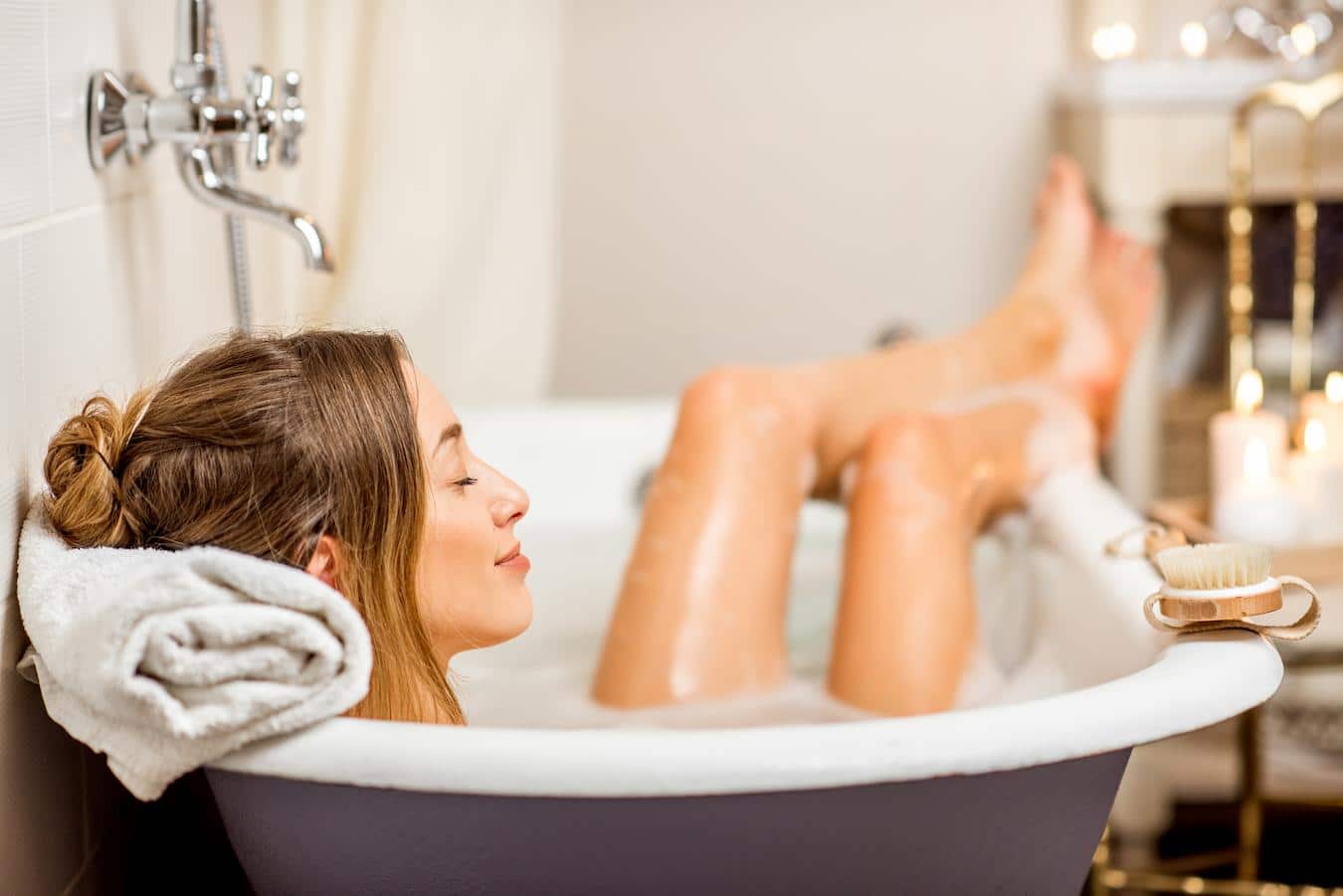A Guide On How To Get Clear Skin

No matter how beautiful you are, there will always be some part of your body you don’t like. Maybe it’s a freckle. Maybe it’s a mole. Or maybe it’s your skin in general. Most people would agree that the biggest beauty enemy is having bad skin.
Whether you have acne or rosacea, all sorts of skin issues can drive any woman to despair. Improving your skin can be difficult. There is no one-size-fits-all approach. Many mixtures and solutions might have worked for a friend or family member but that doesn’t guarantee they’ll work for you as well.
What works on someone with dry skin will not necessarily work on oily skin and vice-versa. Everyone’s body is different so knowing the best treatment options requires some trial and error. In this article, we will discuss a guide on how to get clear skin.
See Related: When To Exfoliate In Your Skin Care Routine
#1. Wash Your Face Twice a Day
You’ve probably heard that washing your face twice a day is a good way to keep your skin healthy. But did you know that waiting too long between washes can actually cause dryness and irritation?
Washing your face before bed is an important step in any skincare routine, but if you’re really looking to improve your complexion, it’s essential to wash again in the morning. Your skin needs to be clean and free from makeup and other impurities when you wake up in order for your serums and moisturizers to penetrate properly.
Washing twice a day helps prevent acne breakouts by keeping pores clear of dirt and oil, which can clog them up and lead to pimples. If you don’t wash well enough or often enough, bacteria can get trapped inside the pore and cause inflammation This inflammation leads to redness and swelling — making the pore look like it’s infected — as well as whiteheads or blackheads.
#2. Use a Mild, Water-Based Cleanser
Three simple words: Wash Your Face!
Regardless of your skin type, you should be cleansing your skin with a face wash twice a day. And this should be the first step in your skin care routine. We know it sounds like something your mom would say, but she’s not wrong.
Cleansing your skin is the first step to getting clear skin. You should use a cleanser that is designed to remove dirt and oil from your face, but not strip away all of your natural oils. You want a mild cleanser that will gently cleanse your skin without drying it out.
Cleansing your face with soap is not recommended because it can leave behind residue that clogs pores. Soaps also contain chemicals that can irritate your skin, causing it to become inflamed and break out in acne. If you want to use a bar of soap, choose one made with natural ingredients like glycerin or coconut oil instead of harsh ingredients like sodium lauryl sulfate.

To clean your skin is to cleanse your face daily with a mild cleanser. A good cleanser will help remove dirt and excess oil clogging pores while preventing over-drying that can lead to irritation and further breakouts. Look for a cleanser that is free of fragrances, dyes, and alcohols that can irritate sensitive skin types.
Use gentle facial scrubs once or twice weekly at most — more than that can actually make acne worse by irritating the skin. Always rinse off after scrubbing to avoid leaving behind any residue that could clog pores further.
Wash hands before touching your face so you don’t transfer dirt or bacteria from your hands onto your face and then spread it around when you touch your face later on in the day.
#3. Moisturize
Most people do not realize the important role skin hydration plays in getting clearer skin. Keeping your skin moisturized is the second most important step after keeping it clean. When anything gets dry it cracks. Your skin is the same. When overly dry, and dehydrated, your skin will start to crack, get red, get irritated, and develop acne and other forms of dermatitis.
Using a water-based moisturizer at least twice a day (on clean skin) will not only give you healthy, glowing skin, but it will also give you clearer skin.
#4. Exfoliate
Exfoliating is another step to achieving clear skin. Exfoliating removes dead skin cells, dirt, and other impurities from your face, leaving it fresh and smooth. It also opens up pores, allowing them to breathe easier. You should exfoliate at least twice a week for best results.
Exfoliation can be done in two ways: through scrubbing or through chemical peels. Scrubs are manual methods that involve physical exfoliation with the use of a scrubbing tool such as a loofah sponge or brush. Chemical peels are chemical-based exfoliants that go deeper into your skin’s surface than scrubs do.
You can choose to use both methods together if you want quick results. However, if you’re looking for long-term effects on your skin then chemical peels are recommended since they will penetrate beneath the surface layers of your skin and affect the deeper layers more efficiently than scrubs do.
Choose an exfoliant that contains salicylic acid or glycolic acid. These ingredients will help loosen up blackheads while also killing bacteria. Use any exfoliant two times per week, after cleansing your face.
#5. Get Plenty of Sleep
Getting enough sleep is good for your skin. According to research, people who get at least seven hours of sleep a night have less acne than those who don’t get enough shut-eye.
The reason? When you’re asleep, your body secretes hormones that regulate oil production and cell turnover, both of which affect the appearance of your skin. And when you’re awake, stress can cause spikes in cortisol levels, which can lead to skin breakouts.
Here’s how to get a more restful slumber:
- Get up at the same time every day. This helps establish a natural circadian rhythm that helps you fall asleep easily at night, even if it means going to bed earlier than you normally would during the week.
- Avoid electronic devices before bedtime. The blue light emitted by electronics suppresses melatonin production (the hormone responsible for helping us fall asleep), making it harder for us to doze off at night. If you need help unwinding before bedtime, opt for reading an old-fashioned book or listening to music without lyrics instead of watching TV or surfing the web until late into the evening — or just keep your phone out of reach while brushing your teeth.
#6. Choose Makeup That Won’t Clog Your Pores
You may think that as long as your foundation is labeled “oil-free,” it will be good for your skin. But that’s not always the case. Some makeup, even those labeled oil-free, can actually make things worse if they contain ingredients such as mineral oil, paraffin wax, and petrolatum (aka petroleum jelly). These ingredients can clog pores and cause breakouts.

If you wear foundation, use a tinted moisturizer instead of heavy foundations with fillers that block pores. Use mineral powder instead of pressed powders or loose powders. Try an oil-free makeup primer before applying foundation to help keep it from clogging pores.
Instead of looking for products labeled “oil-free,” look for ones labeled “noncomedogenic” or “non-acnegenic.” These products are designed specifically for people with acne-prone skin (and for anyone who wants to avoid breakouts).
They won’t clog your pores and will help prevent pimples from forming in the future. Oh, and keep those makeup brushes clean! Be sure to regularly wash makeup brushes, or you will develop irritating skin conditions.
#7. Don’t Pick At Your Skin
Clear skin is something that many people are trying to achieve. Many of them may have tried all sorts of methods to achieve this goal, but they were not able to get the desired result.
It is important for people who want to get rid of their pimples and other skin problems to understand that there is no single solution or product that can help them to get clear skin. There are several things that they can do in order to achieve healthy and radiant skin.
One of the most important things that you need to do in order to get rid of your acne is not picking at your skin. Picking at your pimples will only make the situation worse; it will cause more inflammation, more redness, and more irritation.
You should try using natural remedies and products in order not to pick at your face. You must also avoid touching your face too much as this will cause further damage and inflammation on your face. If you want clear skin, then you should avoid touching or scratching any part of your body including your face.
#8. Relax
In this day and age, we are constantly bombarded with images of perfect skin. Sometimes, it’s hard not to compare ourselves to these images and feel like our own skin doesn’t measure up. However, there is no need to compare yourself to anyone else! Everyone’s skin has its own unique characteristics that make it beautiful in its own way.
#9. Don’t Smoke
Smoking is bad for your skin. It can cause premature aging, wrinkles, and other skin problems. If you have ever seen the effects of smoking on a person’s skin, you will understand why it is not something to take lightly.
If you smoke, stop right now! If you don’t smoke, try not to start. Smoking is one of the worst things you can do to your body and your appearance.
You may not know this but smoking also affects the way your skin looks. It makes it dull, wrinkled, and discolored in many ways. This is why if you want clear skin, you should quit smoking as soon as possible.
Bonus: Where to Apply Liquid Foundation
Benefits of Having A Clear Skin
Clear skin is a key element of the allure of beauty. It is important because, with it, you get to create a healthy look. Clear skin can also be achieved naturally. That will not only help you save money but also time and health-related complications which include infections and most importantly your confidence level will improve as well.

Makes You Look Better in Photos
Clear skin makes you look better in pictures, no matter what the camera angle is. It’s a fact that people with clear skin look better than those who don’t have one. A clean face is more attractive and people will notice how great your skin looks even from afar.
Makes You Feel Confident
Having clear skin will boost your confidence levels as well as help in improving your mood and personality because it reflects how good you feel about yourself when people compliment your appearance or express interest in getting to know you better because of how great you look in person.
This can be achieved by using natural remedies like rose hip oil which has been proven effective in reducing acne scars and other blemishes on the face due to its anti-inflammatory properties which help in treating acne spots naturally without causing any side effects.
Saves Your Time in the Morning
If you have a job or you are going to school every day, you might be familiar with the rush time in the morning after you wake up. You need to prepare yourself for work or school and then go out for breakfast or lunch somewhere before heading to your workplace or school.
This can take up much of your time especially if you live far away from these places or there are many traffic jams along the way from where you live to where you go every day. If you don’t want this kind of hassle every morning, then it would be better if you have good skin condition so that there won’t be any problem.
Makes You Feel Comfortable in Your Skin
Having beautiful, flawless, and clear skin makes you feel confident about yourself. This is because it will make you look younger and healthier than before. You will also be able to build better relationships with people around you because they will be attracted to your new appearance.
Helps Protect Your Skin from Harmful UV Rays
UV rays can cause serious damage to our bodies if we are exposed to them for long periods of time. It can lead to wrinkles and fine lines in the long run which can affect our overall appearance thus making us look older than we actually are.
When we take good care of our skin by protecting it from harmful UV rays, we are able to keep our youthful glow for much longer than expected and this can help us avoid many health problems later on in life such as cancer or other diseases that tend to occur when old age catches up.
FAQs About How to Get Clear Skin
There are many FAQs about how to get clear skin. While there is never one straightforward answer to any problem, working towards clear skin may not be as challenging as you think. Here are some FAQS about how to get clear skin.

How Does Skin Become Acne-Prone?
Acne occurs when the pores on your face become clogged with dead skin cells and excess oil. Bacteria grows on top of the clogged pore, causing inflammation. If you have oily skin, you may have more frequent breakouts than people with dry or normal skin types.
People with oily skin tend to have larger pores that are prone to becoming clogged. The sebaceous glands produce more oil than those with dry or normal skin types. The extra oil can cause blackheads and whiteheads to form inside the pores of your skin.
What Is the Best Way to Treat Acne?
There is no one-size-fits-all approach when it comes to treating acne. The best treatment will depend on your unique needs and preferences. You may need to try different methods before you find one that works for you.
The best way to treat acne depends on the type of acne you have, how severe it is, and your age. Some people only get a few pimples here and there while others develop cysts that can leave scars behind if not properly treated in time. Both types of acne require different treatments because they come from different causes.
What Is the Cause of Dry Skin?
The exact cause of dry skin is not well understood, but it’s believed that several factors are involved. These include:
- Age — As you age, your skin becomes thinner and more delicate. This makes it more susceptible to damage from environmental factors such as heat and cold, which can lead to dryness and flaking.
- Your genes — Your genetic makeup plays an important role in determining how dry your skin will be throughout life. If your parents or siblings had dry or sensitive skin as children or adults, you’re more likely to have it too.
- Your diet — Eating a healthy diet rich in vitamins A, C, E, and omega-3 fatty acids may help keep your skin hydrated by supporting its lipid barrier function (the outer layer that keeps moisture in).
- Lack of care — Your skin is an organ – and it is the largest. It needs to be cared for just like any other part of your body! Keep it clean, and keep it hydrated.
Wrapping Up
Your skin needs good nutrition to gain the health that it has been lacking. The five tips listed in this article should help you on your way to clear skin. Each tip is a simple change, but collectively they will help you cut down on blemishes and prevent the pores on your skin from becoming clogged, leading to breakouts. These steps will not be an overnight cure, but with a little patience, your skin will be healthier than it ever was.
Keep Reading: Why Are My Lips Always Dry And Peeling?
—
For over 60 years, Viviane Woodard has represented “The Purity of Skincare”. We are the leading beauty brand for skin care products and promote the importance of good skin hydration. Follow us on Facebook, Instagram, Twitter, and Pinterest for skin care tips, product discounts, and more.
